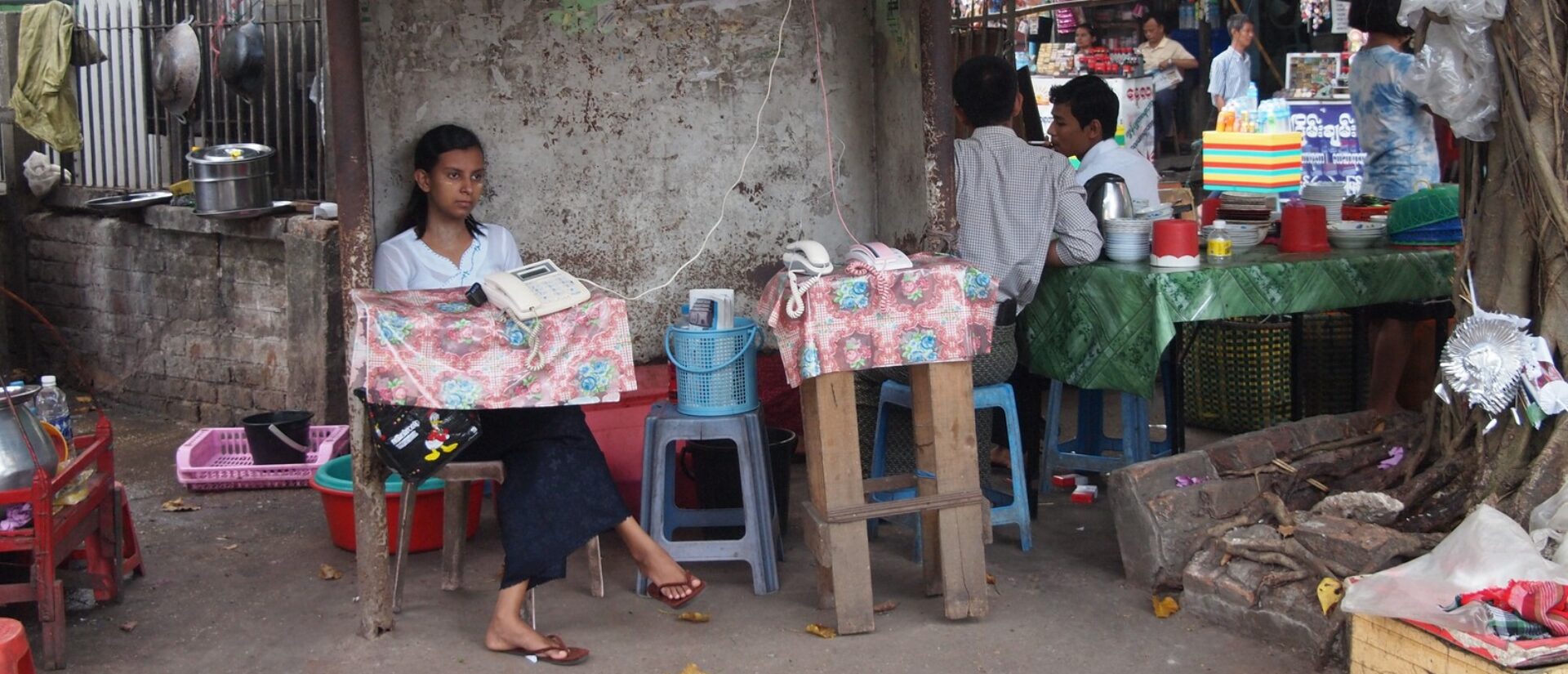
Complaint accepted against Norwegian company Telenor for its actions in Myanmar
A complaint filed by 474 Myanmar-based civil society organisations against Telenor Group in July 2021 has been declared material and substantiated by the Norwegian National Contact Point (NCP) for Responsible Business Conduct. Telenor, which is for 53% owned by the Norwegian government, is putting at risk the security and human rights of the 18.2 million mobile subscribers and pro-democracy activists in Myanmar as it rushes to sell its Myanmar operations to the Lebanese M1 Group, which is infamous for its business activities in countries with violent totalitarian and extremist regimes.
Complaint against Telenor for irresponsible disengagement from Myanmar
This news comes as Minister of Communications, Information and Technology Htin Linn Aung of National Unity Government, the democratic government established after the military’s attempted coup, appealed(opens in new window) to the Norwegian government to be “as active owners now as the Norwegian government was when they were promoting Telenor when they applied for a licence in Myanmar” and reverse the sale of its telecoms business and data to M1 Group.
Thus far, there has been little public reaction from the majority owner of Telenor Group, the Norwegian government.
“Now that the NCP has accepted the complaint, I would be surprised if the Norwegian government as majority owner did not react,” said SOMO senior researcher Joseph Wilde-Ramsing, who has supported the Burmese civil society organisations filing the complaint. “Norway has historically been a great supporter of human rights, and I would expect the government to actively use their majority stake to ensure Telenor Group acts ethically and in line with international principles for responsible business conduct.”
Potential consequences for Telenor
The complaint contends that Telenor’s sale of its Myanmar business to M1 Group fails to meet the standards of responsible disengagement set out in the OECD Guidelines for Multinational Enterprises. The Norwegian National Contact Point (NCP) for the OECD Guidelines has now determined that the issues raised in the submission are “material and substantiated” and thus merit further examination. The NCP has offered to mediate between the company and the civil society organisations. Telenor is not legally bound to accept the NCP’s offer of mediation, but if Telenor refuses mediation, or if the mediation fails to result in an agreement between the parties, the NCP can itself conduct an investigation to determine whether Telenor acted in accordance with the OECD Guidelines and make a public statement with its findings. In countries like the Netherlands and Canada, companies that are found to have acted in breach of the OECD Guidelines risk losing various forms of state support such as export credit insurance, innovation subsidies, public procurement contracts and international trade support.
The notorious M1 Group
M1 Group is a Lebanese company owned by the billionaire Mikati family, who have a history of business in countries with totalitarian regimes including Syria, Sudan and Yemen, as well as unresolved allegations of corruption and terrorist financing. One of M1’s owners, Najib Mikati, is the serving Prime Minister of Lebanon. M1 Group was identified by the 2019 UN Independent International Fact-Finding Mission on Myanmar as having financial links to the Myanmar military as a result of their investment in an infrastructure company that has commercial ties to a Myanmar military mobile operator. Underscoring its lack of respect for international standards for human rights and meaningful engagement with stakeholders, M1 Group’s Executive Director has called(opens in new window) civil society’s concerns about potential negative human rights violations “completely irrelevant”.
“In Myanmar, our life continues to be at risk from the military junta’s terrorism and their increasing surveillance,” said Ko Ye, a Myanmar human rights activist who is part of the complaint. “We remain shocked that Telenor is rushing to sell their Myanmar business to such unscrupulous buyers without sufficient human rights due diligence, transparency or stakeholder engagement. The sale to M1 Group must be suspended before it leads to more killings and torture. We assume Telenor’s owners, the Norwegian government, will reverse the sale when they understand what’s at stake here.”
SOMO’s Wilde-Ramsing: “We would have been surprised if the Norwegian NCP had not accepted this serious complaint. Sensitive telecoms data can put the lives of 18.2 million subscribers at risk. The junta has killed more than 1,000 people and imprisoned more than 7,000 since the coup. Telenor has not disclosed whether or not it has already shared user data with the regime. If Telenor did do this, have they informed their subscribers? Did they give them a chance to get out of the country or hide by informing them via SMS? Rather than seeking to make money off the sale, Telenor should be donating any proceeds to the Myanmar strike fund(opens in new window) and also establish a fund to assist (former) customers who may be targeted by the regime using Telenor’s user data. The NCP’s acceptance of the case allows us to have a serious discussion about these issues with Telenor.”
Do you need more information?
-

Joseph Wilde-Ramsing
Advocacy Director
Related news
-
 CSDDD Datahub reveals law covers fewer than 3,400 EU-based corporate groupsPosted in category:News
CSDDD Datahub reveals law covers fewer than 3,400 EU-based corporate groupsPosted in category:News David Ollivier de LethPublished on:
David Ollivier de LethPublished on: -
 Additional evidence filed against Booking.com for profiting from illegal settlementsPosted in category:News
Additional evidence filed against Booking.com for profiting from illegal settlementsPosted in category:News Lydia de LeeuwPublished on:
Lydia de LeeuwPublished on: -
 The hidden human costs linked to global supply chains in ChinaPosted in category:News
The hidden human costs linked to global supply chains in ChinaPosted in category:News Joshua RosenzweigPublished on:
Joshua RosenzweigPublished on:

